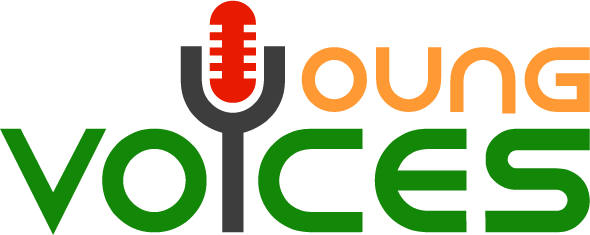If you thought hormonal ups and downs were limited to your teenage years and pregnancy, think again! Perimenopause, the time leading up to your final menstrual cycle, can be a hormonal roller coaster.
The year I turned 40, it hit me like a ton of bricks. My body felt completely out of control and I had no clue how to tackle the problems; mainly because there was no information available and neither does anyone prepare you for it. I went from doctor to doctor and ran a battery of tests and scans as per the instructions of the doctors. Finally, our family doctor in India pointed this matter out to me. What he said made sense and things finally fell into place. And in this article, I am going to share some of my understanding, based on personal experience, with you. Please note: I am not a medical expert, but am simply sharing all of my research and opinions from experts with you.
What is Perimenopause?
The time preceding menopause has been referred to as the perimenopause. There is no strict medical definition of perimenopause. It typically refers to the time approaching menopause during which a woman starts to develop symptoms of declining estrogen levels.
Perimenopause occurs during the 40s for most women, but some notice changes as early as their mid-30s and others later. “Your ovaries are shutting down, but the process takes some time. That process is called perimenopause,” explains Kourtney Morris, MD, a Physician Network OBGYN in Lafayette, Indiana.
Most women will experience some symptoms around the menopause. The duration and severity of these symptoms varies from woman to woman. For some women, perimenopause is barely noticeable but for others, the symptoms make them miserable.
What are the symptoms of perimenopause?
Your ovaries have been making estrogen since your first period but during perimenopause, the estrogen production decreases substantially. Your body has to adjust to functioning with less of the hormone, putting you into estrogen withdrawals. The type and intensity of symptoms vary greatly from woman to woman.
Some symptoms of perimenopause include:
- Hot flashes
- Night sweats
- Nausea
- Mood changes
- Headaches
- Fatigue
- Brain fog
- Breast tenderness
- Trouble sleeping
- Irregular periods
- Increased PMS
- Bloating / acidity
- Thinning hair
- Dry skin and itchiness
- Alteration of blood cholesterol levels
- Bladder problems
- Vaginal dryness
- Vaginal pain and/or pain from sexual intercourse
- Alleviation of Perimenopausal Symptoms
Typically, perimenopause is a gradual transition and no particular test indicates what is happening to the body.
Treatment of perimenopausal symptoms include hormone therapy, lifestyle changes such as diet and exercise, antidepressants and vaginal estrogen therapy which can all help decrease the severity of the symptoms of perimenopause.
It’s best to start by identifying what’s bothering you most and then working with your doctor to address it. Your gynecologist can help develop a treatment plan to tackle symptoms like erratic bleeding, depression and/or irritability. There are steps you can take to feel better.
Natural remedies for perimenopause include:
- Dietary changes
- Regular exercise
- Vitamin D supplements
- Limit alcohol
- Natural herbs and supplements

Nutrition Matters
Food and nutrition is the best therapy as this is something you can control. So, here is a list of 15 foods that not only taste good, but are filled with vitamins, nutrients and minerals that can help to support a healthy hormonal balance and personally, has helped me immensely.
Flaxseeds / Chia Seeds: They are full of fiber, antioxidants and omega-3 essential fatty acids. Use a tablespoon of it in your breakfast porridge or morning smoothie.
Oats: oatmeal is perfect for a busy, modern lifestyle. It’s full of healthy fiber. It’s naturally gluten-free. And it’s a convenient way to start your day. It promotes weight loss, boosts your energy and immune system. Stick to old-fashioned oats and use sweeteners like raw honey and maple syrup.
Tomatoes: Top your favorite salad with sweet grape tomatoes or make a homemade tomato-basil soup.
Wild Salmon: This is one of the best foods you can eat to get more omega-3 fatty acids in your diet. Enjoy it marinated, glazed or simply roasted with a little salt and pepper and a squeeze of lemon.
Cabbage: Like other cruciferous vegetables, cabbage can help to balance your estrogen levels. Cabbage is great in soups, stews, stir-fry or even as a crunchy addition to a salad or a taco topper.
Broccoli: This cruciferous vegetable is high in fiber and vitamin C. Most people tend to eat the florets; however, the stalks can be just as tasty. Simply peel the outer layer of the stalk with a vegetable peeler and chop up the tender insides. Add it to a broccoli slaw.
Garlic: Add lots of fresh garlic to your salad dressings and stews. Garlic helps to improve cardiovascular health and can help prevent some cancers.
Lean meat: Choose chicken or turkey breast which helps with the daily protein intake and maintaining a healthy weight.
Nuts: Walnuts, almonds and Brazil nuts are examples of good fats that contain magnesium, selenium, antioxidants, etc. Add them to a salad or eat a handful as a snack.
Seeds: Pumpkin and sunflower seeds are foods that can help keep your complexion clear. These seeds are tasty blended into a dip or on top of a salad.
Sweet Potatoes: A source of calcium to help keep your bones strong. Enjoy them baked or steamed with your lunch or dinner.
Oranges: Full of vitamin C, antioxidants, fiber, etc., that can help you manage your blood sugar, oranges make a great snack with a handful of nuts in between meals. Eat the whole thing, though — don’t just drink the juice.
Pineapple: Research shows that pineapple may be able to reduce hot flashes and night sweats. Try a fresh-pressed pineapple juice made with cucumber and basil for a refreshing non-alcoholic cocktail.
Beans and lentils: The fiber in beans and lentils helps to stabilize blood sugar and may be able to regulate mood swings.
Avocados: Enjoy the creamy goodness of an avocado to help you lower your blood pressure. Avocados are a great alternative to milk and cheese in your smoothies and salads.

Keep Hydrated
Water will help combat vaginal dryness and dry skin. It will also help to keep your whole digestive system oiled which will improve bloating and the bonus is it will plump out those wrinkles. Make sure you get your eight glasses a day.
But most importantly, what comforts women most, is knowing that they’re not alone – and that perimenopause doesn’t take away your vitality. Your body is moving towards not having babies anymore. It’s completely normal and natural. You’re just preparing for the next stage in life.
About the Author
 “Traveler at heart, photographer, decor addict, rookie chef and volunteer contributor for Namaste Switzerland and IndoSwiss Kids’ Chronicle”
“Traveler at heart, photographer, decor addict, rookie chef and volunteer contributor for Namaste Switzerland and IndoSwiss Kids’ Chronicle”
Disclaimer: Opinions expressed belong solely to the content provider. Namaste Switzerland does not undertake any financial/reputational/legal/misrepresentational impact or other obligations/ liabilities that may arise from the content.












